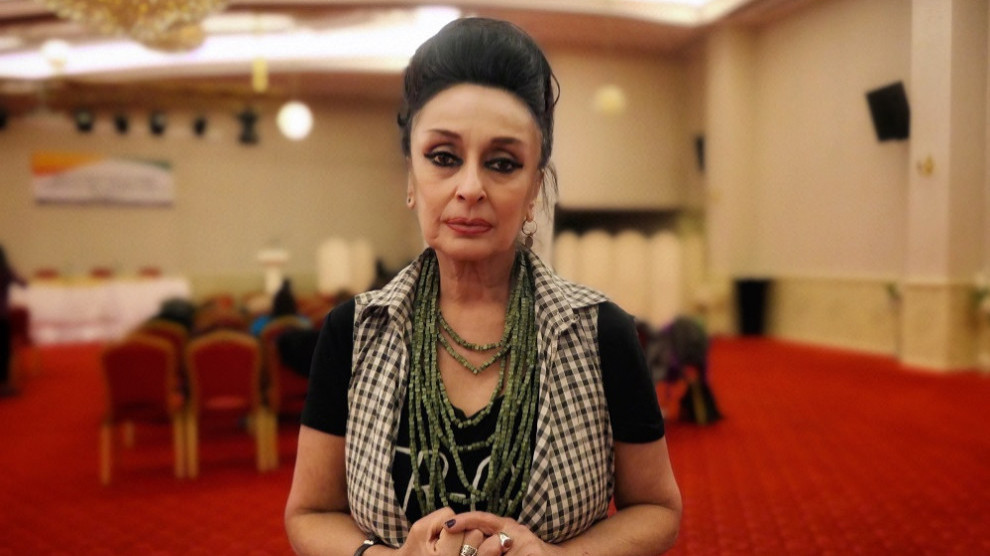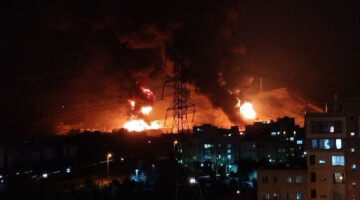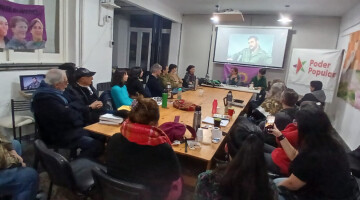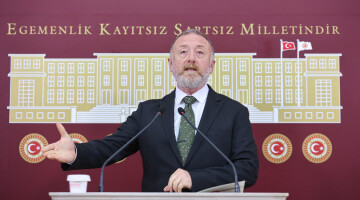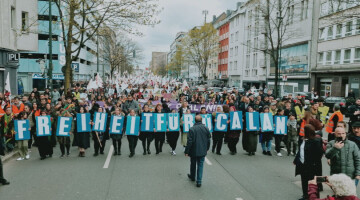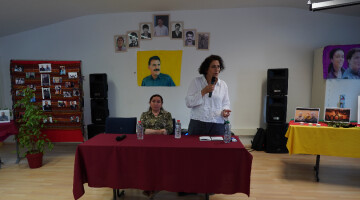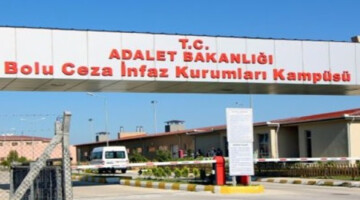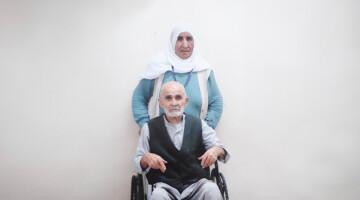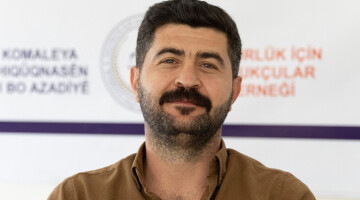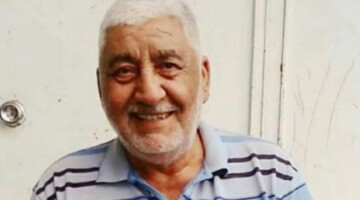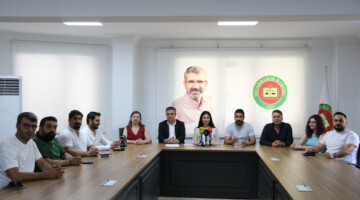Since August 12, the Turkish state has again been relying on the total isolation of Abdullah Öcalan. On that date, the PKK founder, who has been imprisoned for over 20 years on the prison island of Imrali in the Sea of Marmara, received a visit from his brother Mehmet Öcalan for the last time. The last consultation with his legal advisers took place on 7 August. Since then, any requests for visits have either been refused or not answered at all. The Kurdish people’s leader is once again cut off from the public.
In Amed (Diyarbakir), on the occasion of a meeting of the "United Kurdish Women's Platform" (Platforma Yekitiya Jinên Kurd), we had the opportunity to talk with the prominent lawyer and human rights activist Eren Keskin about the situation on Imrali. Keskin, who is co-chair of the Human Rights Association IHD, was one of the twelve lawyers who represented Öcalan after his abduction from the Greek embassy in Nairobi, Kenya, to Turkey in 1999. She says that from day one, the Imrali island prison has been an illegal system without a legal basis that respects neither international conventions nor Turkish criminal law. Isolation has existed from the very beginning, although the dimensions have changed from time to time. "I can say quite clearly that the system applied on Imrali is not implemented in any other prison in Turkey," Keskin said.
Solitary confinement is a common and well-known method of white torture. This term covers methods that are not so easily recognisable as torture to the public, but which attack the psyche or even the body of the torture victim and aim to destroy the person as a person.
Disciplinary sanctions provide a formal framework for isolation
"We are against all forms of torture, especially since we are defenders of human rights. In the case of Abdullah Öcalan, isolation is not limited to one person. Öcalan is a leading figure, his isolation has an effect on the whole of society. In the course of the so-called peace negotiations, the state pursued other methods. People in prisons have the right to receive visits from their relatives and lawyers. But criminal law does not apply to Imrali. Öcalan is abused as a political hostage. As human rights defenders, we cannot accept this. The IHD Headquarters has reiterated its demand for an end to the isolation on Imrali countless times and has even proposed to hold talks with Öcalan. So far, none of our requests has been responded positively", Keskin reports.
Moreover, arbitrary practices such as disciplinary sanctions are regularly imposed on Öcalan and his three fellow prisoners on Imrali. Only last week it became known that the Imrali prisoners were again subjected to disciplinary measures on 21 October. According to Keskin, this is a formal framework to prevent family visits and lawyer consultations to maintain isolation. "We all know that there is no legal basis for measures like these."
War responsible for economic crisis
Since the foundation of the republic, it has been common practice in Turkey to use no other method than violence in connection with the Kurdish question, says Keskin. The policy of war has been implemented all the time, even though it is clear that it does not produce results. "The cause of the economic crisis in Turkey is the war. Unfortunately, our working class is not aware of this. If one million people happened to take to the streets and shout that they do not want war and that the bread on their table is stolen, we would get peace", Keskin said.
“The Kurdish problem cannot be solved with violent politics. This had become clear when society was able to breathe a sigh of relief for a short time during the peace process between the government and Öcalan. There were positive developments and the people were relieved. Everyone recognised that. War brings nothing but destruction; as advocates of human rights, it is our duty to stand up for peace.”
Keskin points out that although Turkey has ratified relevant anti-torture conventions, it is not questioned whether Ankara adheres to these. Reports of the European Committee against Torture (CPT) have hardly been made public. The CPT as an institution of the Council of Europe has the unrestricted right to investigate prisons, police stations, refugee camps and psychological clinics in the member states. If deemed necessary, the CPT may send a delegation to an institution of its choice and carry out investigations. It is the only institution which has the authority to visit Abdullah Öcalan. A CPT delegation last visited Imrali in April 2016, and the report on the visit was not published until two years later, as the reports produced after the visits cannot be published without the consent of the respective governments.
Turkey mustbe reminded of its responsibilities
Many more organisations dedicated to the fight against torture and other forms of human rights violations should send delegations to Imrali to investigate the conditions there and make them public, Keskin demands. The Turkish government must be reminded of its responsibility to act in accordance with the ratified conventions. "We have been campaigning against the system of isolation prevailing there since the beginning of Öcalan's imprisonment at Imrali. Of course this also applies to the other prisons in the country. Our prison commission visits the prisons and submits reports. We will continue this fight until the isolation is ended."
RELATED NEWS:

